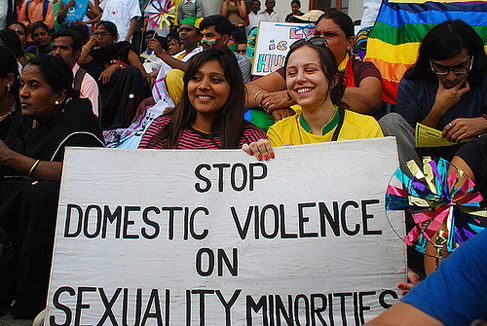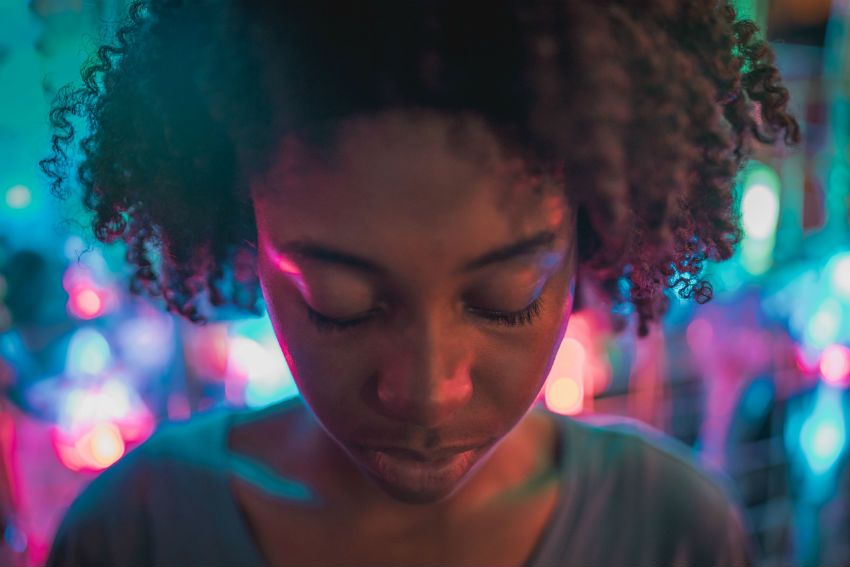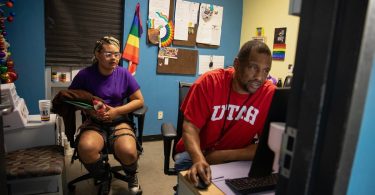Posed by model | Unsplash
A lesbian fled Uganda and ended up in an abusive relationship with her English girlfriend.
Miremba, not her real name, was victim of an attempted ‘corrective’ rape to ‘cure’ her of her sexuality.
Fleeing threats of assault and mob violence, the 32-year-old came to the UK to find safety.
But, after what felt like a honeymoon of romance, her English girlfriend manipulated her and eroded what little confidence she had.
Promising to aid with her asylum claim, the girlfriend attempted to exert control over Miremba. It led to the girlfriend preventing Miremba from leaving the house they shared as she ‘vowed’ to turn her over to the Home Office.
This story is part of GSN’s dedicated content series on domestic abuse.
Understanding homosexuality in Uganda
‘I knew I was different from a very young age,’ Miremba tells GSN. ‘I wanted to play with my brothers. Sewing and other girly stuff bored me.’
Her uncle noticed this ‘difference’. At 16, Miremba remembers hearing her uncle and his friend talking together.
‘They kept saying I must be “sick”. There was something wrong with me,’ she said.
‘And that’s when my uncle’s friend came to my room. I’d only met him a few times. And then he tried to rape me. I just screamed and screamed and hollered my throat out.
‘My mother came home, hearing my screams, and threw him out.’
Miremba realized she had feelings for women. But fearing her uncle would bring another one of his ‘friends’ to her room, she kept it quiet.
Later, at 19, she heard of a gay man being beaten near to death. She feared her life would be over if others found out about her sexuality.
Three years later, she arrived in the UK.
Settling in Leeds, Miremba filed her asylum claim and began dating a woman. We will call her Jessie (also not her real name).
Domestic abuse in the UK

‘At first it was wonderful,’ Miremba said. ‘I fell in love very quickly. But she showed her true colors.’
The abuse started small.
‘I thought [Jessie] was just really particular, like going to see what she wanted at the cinema or what we ate. She didn’t really care about what I thought at all,’ she said.
Miremba felt like she had to rely on Jessie. How else would she get asylum if she didn’t have a girlfriend?
‘She knew that I needed her,’ Miremba said. ‘She would say, when she was angry with me, that she’d go to the court and tell them I was lying and then I’d be sent back to Uganda so she didn’t have to deal with me.
‘I got very upset.’
Miremba felt like she had to do ‘anything’ to keep Jessie happy if it meant not being deported to Uganda. She began to walk on eggshells around her, fearful of making her angry.
Prevented from leaving home
During one scheduled interview with the Home Office in March 2016, Miremba asked Jessie to come with her to show support.
‘She didn’t want to,’ she said, remembering the day. ‘She couldn’t be bothered.
‘I pleaded with her. And that’s when she got angry.’
Jessie stole Miremba’s keys, saying she wouldn’t let her leave if she was going to be a ‘bitch’.
‘I just remember crying in the bathroom,’ Miremba said. ‘I couldn’t leave – it was so scary.’
But her story didn’t end there.
Future
She was able to contact her lawyer, who was able to inform the Home Office why she missed the important interview.
Two weeks later, Miremba left and stayed with a friend.
Five months later, she was granted asylum in the UK in late 2016.
‘I went from one terrible and awful situation to another,’ she said. ‘But it can’t, and it won’t define me.’
Miremba is now training in accountancy, living in Manchester, and has a girlfriend who loves and supports her.
‘I felt like I’d never find happiness – but I have.’
If you are experiencing any signs of domestic abuse, remember – you’re not alone.
Are you in the US? Contact The Anti-Violence Project hotline: 1-212-714-1141
Are you in the UK? Contact Galop, who run the National LGBT Domestic Abuse Helpline: 0800 999 5428
If you want to share your story of domestic abuse, please contact James Besanvalle on [email protected] or Joe Morgan on [email protected]






